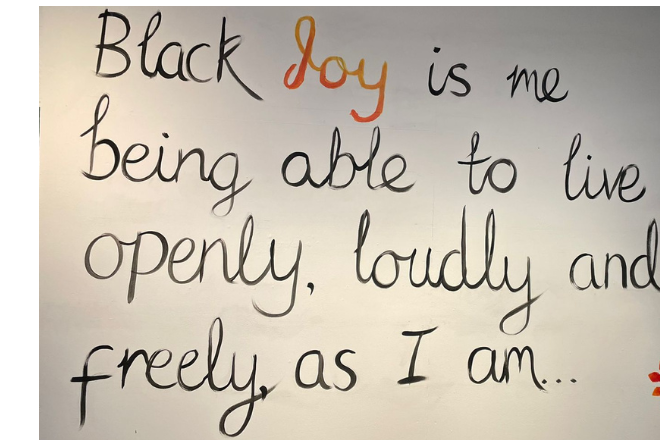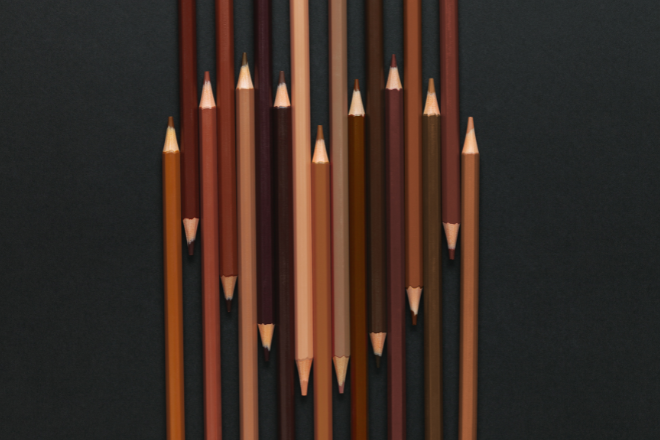"It is not our differences that divide us. It is our inability to recognise, accept, and celebrate those differences." — Audre Lorde
Over the past year, myself (Isaac Samuels) and Samantha-Jane Ofoegbu have been on a deeply emotional and transformative journey, exploring the experiences of individuals from racialised backgrounds involved in co-production. This journey has shed light on the unique challenges, inequities, and at times, painful realities that emerge in these spaces. We have seen that co-production, though considered to be collaborative and equitable, can too often become a space where systemic racism is perpetuated.


As part of this work, we’ve gathered over 30 personal stories and produced an insight report that brings to the forefront the voices of those too often overlooked in these processes. Through numerous sense-making workshops, we have collectively explored the key findings, delving into how we can reshape these spaces to create more inclusive experiences for individuals from the global majority.
It’s fair to say that co-production is not immune to racism. It is, in fact, a space where inequities often play out, consciously or unconsciously. This was made all the more apparent during our two "Conversations of Change," where we invited people to respond to our initial findings and offer their insights on what we, as a community, can do to increase inclusivity. The stories shared during these conversations, were both heart-breaking and all too familiar to those of us from racialised backgrounds.
One comment that has stayed with me is:
“You can’t do co-production without talking about racism.”
This simple but powerful statement speaks volumes. Co-production is meant to break down barriers and foster collaboration, yet without addressing racism head-on, we risk replicating the very hierarchies we seek to dismantle. True co-production must start with an honest conversation about race and power.
Our Recommendations: A Call to Action
Informed by these collective insights, we have developed a series of recommendations for organisations and individuals involved in research and co-production. These recommendations aim to create long-term, transformative change and ensure that anti-racism becomes embedded in co-production practices. We believe it is important to:
- Centre the voices of racialised individuals. The perspectives of those from racialised backgrounds should be integral to the process, not an afterthought. They must be given space and value in every stage of co-production.
- Create spaces for open dialogue about race. Conversations around racism and power dynamics should not be avoided or glossed over. Organisations need to actively create environments where these discussions are welcomed, even when uncomfortable.
- Commit to anti-racism as an ongoing process. Anti-racism work is not a one-off event but a continuous commitment. Organisations must invest in long-term practices, training, and resources to challenge racism within co-production spaces.
- Empower global majority leadership. People from the global majority should not only be included but empowered in leadership roles. Their lived experience and insight are vital to shaping the future of co-production.

Looking Forward
This piece of work has been one of my life’s proudest achievements, but also one of the hardest. The work we’ve done to amplify these voices has been profound, but the real change comes in what we do next. This journey is far from over, and the path ahead requires courage, honesty, and sustained action.
It’s not enough to simply talk about the challenges; we must commit to creating co-production spaces that are genuinely inclusive, where everyone feels valued and heard. Our recommendations offer a framework for change, but the responsibility lies with all of us to make that change a reality.
We invite you to explore our work further. But don’t just take our word for it. Here is our insight report, and a collection of video clips that truly speak to the experiences of racialised individuals in co-production spaces. Their voices matter—and their stories must guide the way forward.
Read the report here
There are a number of ways to explore the Understanding Anti-Racism in Co-Production Spaces: Centring the Voices of Racialised Individuals Report:
- Read the Full Insight Report - available as a PDF with single page spreads or as PDF showing double page spreads or as a Word document.
- Read the Summary version of the Insight Report - available as a PDF or as a Word document.
- **Coming soon!** A video version of the Insight Report Summary and other accessible versions of the Full Report.
Please also explore our collection of video clips (via You Tube).
Please help us promote these resources by sharing them on social media. You can find posts from us on Bluesky and LinkedIn.
Accessible versions
We also have the following accessible versions of the Report available to download from a Google Drive folder:
- A screen reader friendly version - as a Word document and as a PDF document.
- A large font version - as a Word document.
- An audio version - as a MP3 file.
- Versions of the Interactive summary in Braille, EPUB, DAISY, MOBI.
If you would like a different format or another version of Braille not listed please ask us, we will happily send this to you - please contact us via email on coproduction@ucl.ac.uk.
Thank yous
Thank you to People’s Voice Media, Co-Production Collective and everyone from the global majority community who took part in this work for their support and commitment to this project.
Thanks also to Kareen Cox of Absolutely Kareen for her illustrations that help us bring the report to life.
For further information please contact:
Co-Production Collective via email on coproduction@ucl.ac.uk
People’s Voice Media via email on enquires@peoplesvoicemedia.co.uk





.png)

.png)
.png)


.png)
.png)
.png)